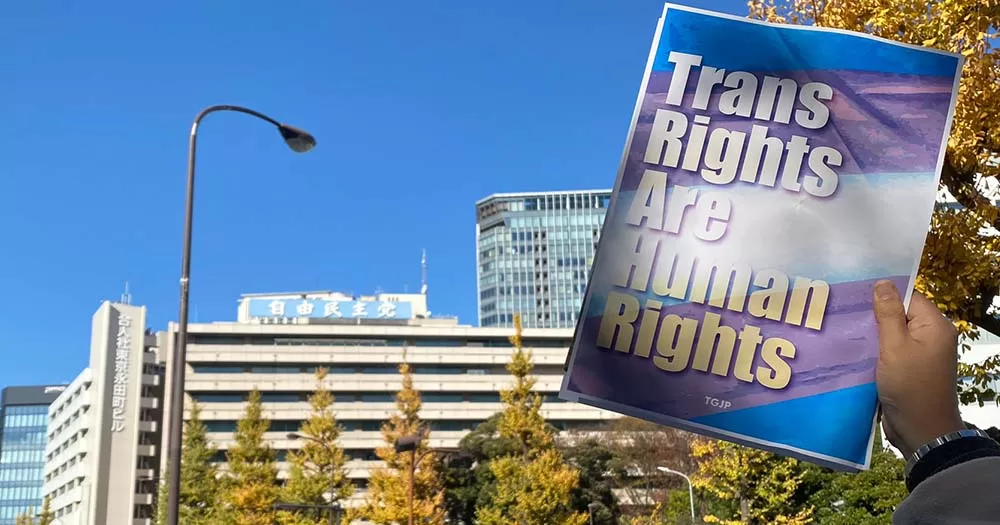In a verdict on Tuesday, July 11, the Japanese Supreme Court ruled in favour of a transgender woman who sued her employer over access to the women’s bathrooms in her workplace.
When filing her case, the woman, who works for the Ministry of Economy, was originally told by her employer that she could only use a toilet located two floors away from her office.
The woman, in her 50’s, was diagnosed with gender dysphoria in 1999. Twenty years later, in 2009, she came out to her employer as a trans woman. While the Ministry initially approved some of her requests, they determined that she could not use the women’s toilets located on the same floor as her desk.
The employee first filed an official request to use the women’s bathroom on her floor two years ago, but Tokyo High Court upheld the bathroom restriction in May 2021.
Today’s ruling overturned Third Petty Bench’s 2021 decision. The court found that forcing her to use a bathroom so far from her office was “extremely lacking in validity”. It determined that the central government needs to pay the employee 110,000 yen ($780) in compensation for the distress she has experienced.
Japan’s Supreme Court has just ruled that it was illegal for the government’s METI ministry to restrict a transgender employee from using the women’s toilets at the workplace. It’s the first time the Supreme Court has ruled on a case involving sexual minorities’ workplace rights. pic.twitter.com/wOoL82l0wV
— Unseen Japan (@UnseenJapanSite) July 11, 2023
In Japan, trans people are required to complete surgery before they can obtain legal recognition of their gender identity. This policy has been described as outdated and harmful, and stands in contrary to international medical best practices.
This ruling may set a precedence for future improvements in Japanese workplaces for LGBTQ+ people. Earlier this year, the country passed legislation intended to protect LGBTQ+ employees from discrimination, but critics say the protections only covered the bare minimum since it only opposes “unjust discrimination”.
Japan remains the only G7 state that does not allow same-sex marriage and constitutionally defines the union as between a man and woman, but earlier this year, Japan court ruled that the same-sex marriage ban is unconstitutional.
While progress toward same-sex marriage in Japan is slow, the government continues to face pressure from other G7 countries to improve LGBTQ+ rights. Two prominent Japanese politicians, Aya Kamikawa and Tomoya Hosoda, are both openly transgender.
© 2023 GCN (Gay Community News). All rights reserved.
Support GCN
GCN is a free, vital resource for Ireland’s LGBTQ+ community since 1988.
GCN is a trading name of National LGBT Federation CLG, a registered charity - Charity Number: 20034580.
GCN relies on the generous support of the community and allies to sustain the crucial work that we do. Producing GCN is costly, and, in an industry which has been hugely impacted by rising costs, we need your support to help sustain and grow this vital resource.
Supporting GCN for as little as €1.99 per month will help us continue our work as Ireland’s free, independent LGBTQ+ media.

comments. Please sign in to comment.